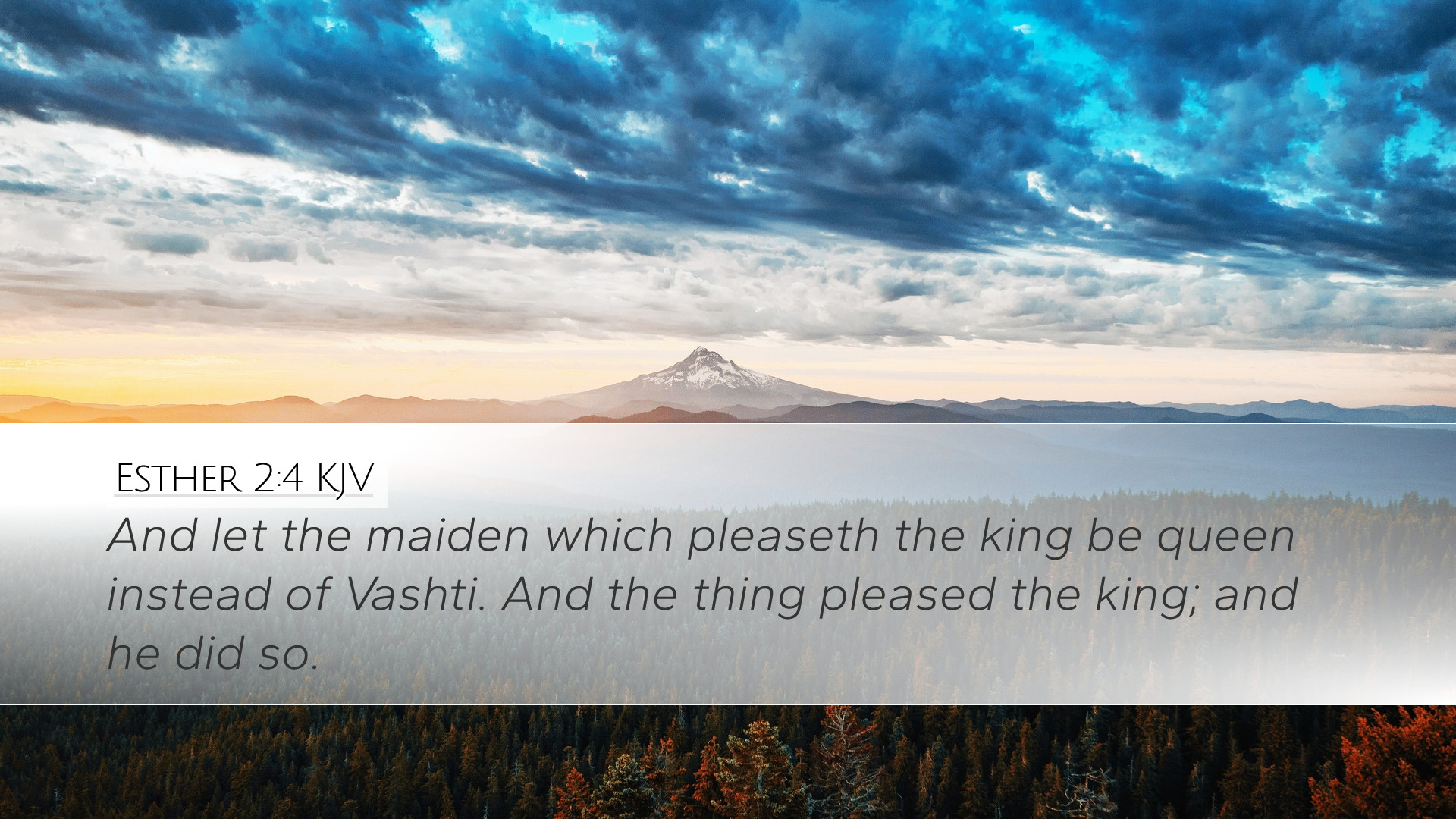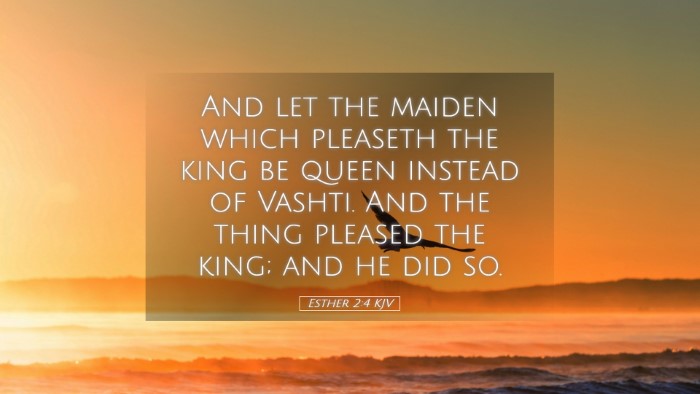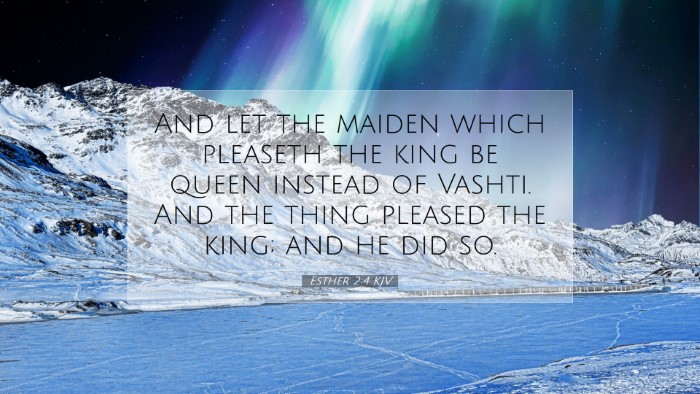Old Testament
Genesis Exodus Leviticus Numbers Deuteronomy Joshua Judges Ruth 1 Samuel 2 Samuel 1 Kings 2 Kings 1 Chronicles 2 Chronicles Ezra Nehemiah Esther Job Psalms Proverbs Ecclesiastes Song of Solomon Isaiah Jeremiah Lamentations Ezekiel Daniel Hosea Joel Amos Obadiah Jonah Micah Nahum Habakkuk Zephaniah Haggai Zechariah MalachiEsther 2:4
Esther 2:4 KJV
And let the maiden which pleaseth the king be queen instead of Vashti. And the thing pleased the king; and he did so.
Esther 2:4 Bible Commentary
Commentary on Esther 2:4
Text of Esther 2:4 (KJV): "And let the maiden which pleaseth the king be queen instead of Vashti. And the thing pleased the king; and he did so."
Introduction
The book of Esther presents a remarkable narrative of divine providence, human choices, and the unfolding of God’s plan through a Jewish girl raised in a foreign land. In this verse, we witness the king's decree regarding the search for a new queen, which sets the stage for Esther’s pivotal role in the history of the Jewish people.
Contextual Analysis
To grasp the significance of Esther 2:4, one must consider the broader context. This event follows the deposing of Vashti, a queen who defied Xerxes, the Persian king. The excitement to find a replacement for Vashti reflects both the king's desire for a new companion and the political machinations of the time.
The King's Desire
Matthew Henry notes that the king's pleasure in selecting a new queen aligns with the royal customs and expectations of the Persian court. His decision indicates both human vanity and the whimsical nature of his affection.
The Criteria for Selection
Albert Barnes emphasizes that the search for a maiden who "pleaseth the king" illustrates the subjective nature of royal favor. It invites considerations on the qualities that make someone pleasing in the eyes of authority—beauty, grace, and perhaps an inherent ability to charm.
Theological Reflections
Beyond the historical and cultural implications, this verse has profound theological significance. The gathering of maidens for selection can be seen as symbolic of God’s overarching purpose in redemption.
Divine Sovereignty
Adam Clarke externalizes the providential hand of God throughout this process: each maiden’s involvement is part of God's preparation for elevating Esther. Such happenings signify that even in seemingly trivial royal decisions, God orchestrates events for His divine will, particularly for the protection of His people.
Human Agency
This verse highlights the balance between God’s sovereignty and human agency. The king's desire illustrates the role of human choice in the divine narrative. The Jewish maidens, including Esther, participate in a process that unknowingly approaches significant historical outcomes.
Implications for Leaders and Believers
For church leaders and believers alike, Esther 2:4 challenges us to consider our roles in God's grand narrative.
Being Chosen by God
Similar to the king's search for a new queen, Christians are called to recognize that they are chosen for a purpose. Just as Esther would rise to influence through her beauty and courage, believers must understand their unique contributions to the kingdom of God.
Moral and Ethical Considerations
While the king's decree might appear trivial, it also brings to light the ethical dimensions of power and choice. Leaders are reminded of their responsibility to act justly and seek God’s heart in their decisions.
Conclusion
Esther 2:4 encapsulates a moment rich with both political intrigue and divine significance. It prepares the reader for Esther’s journey from obscurity to prominence and ultimately illustrates God's protective hand over His people. Pastors, scholars, and students would do well to engage with this text not merely as an ancient narrative but as a living word that resonates with our understanding of God’s providential work in the world today.


